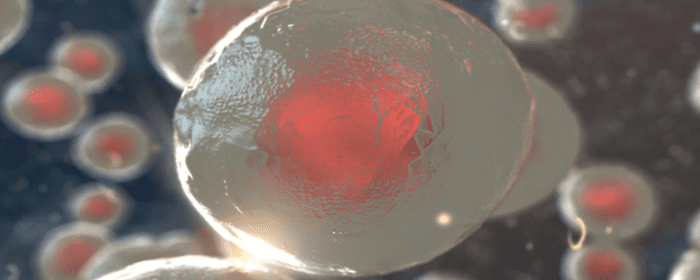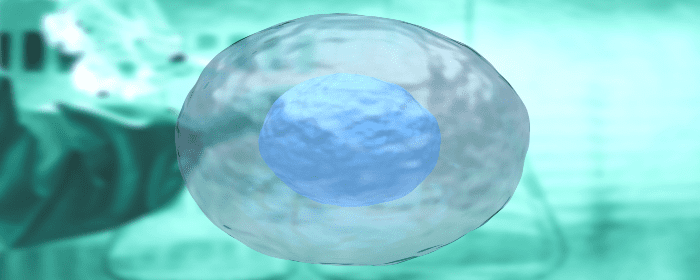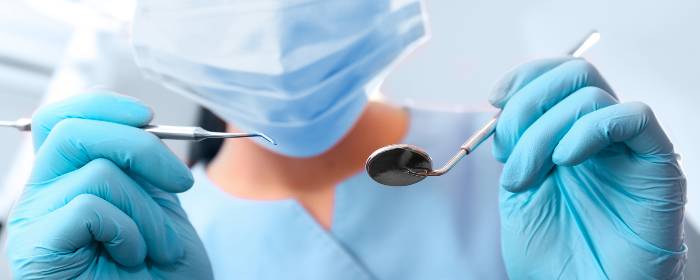
by admin | Mar 19, 2020 | Multiple Sclerosis, Mesenchymal Stem Cells
Multiple sclerosis is a chronic neurological disease that
affects the brain and spinal cord. In multiple sclerosis, an immune reaction
breaks down the covering around neuronal axons, myelin. Depending on where in
the brain or spinal cord this inflammation occurs, patients with multiple
sclerosis may experience weakness, a lack of sensation, double vision, difficulty
walking, difficulty with balance, problems with urination, dizziness, and/or
pain. Over time, patients with multiple sclerosis require assistive devices
such as canes or wheelchairs to get around, and some ultimately become
bedridden.
Multiple sclerosis can be divided into 4 types:
Clinically isolated syndrome – The first episode of MS; about two-thirds of people with a clinically isolated syndrome of MS will go on to have one of the other types listed below
Relapsing-remitting – Patients have symptoms for a
time, which resolve, but then eventually return
Secondary progressive – After some cycles of flare-ups
and remissions, the disease is present all the time; some patients with
relapsing-remitting disease develop secondary progressive MS
Primary progressive – Once symptoms start, they do
not resolve but instead get progressively worse
Fortunately, there are some treatments that can change the
course of multiple
sclerosis. There are several disease-modifying agents available for people
with relapsing-remitting disease and a few for progressive multiple sclerosis.
These drugs can reduce the rate at which symptoms get worse or extend the
length of time between flare-ups. Unfortunately, not everyone can tolerate
these drugs, and, in others, the drugs are not very effective. None of these
drugs is a cure for multiple sclerosis.
Researchers have turned to mesenchymal
stem cells as a possible treatment for multiple sclerosis. These cells have
the ability to regulate the immune system and support the nervous system. There
have been so many clinical trials of stem cells in multiple sclerosis that
researchers can now perform a meta-analysis on them. A meta-analysis is a
special study in which all trials on a particular topic are combined and
analyzed, i.e., a study of studies.
In their recent meta-analysis, Dr. Zhou and co-authors identified 9 clinical studies using mesenchymal stem cells to treat multiple sclerosis. They found that the rate of disease progression with stem cell treatment was 16% at 6 months and 35% at 1 year. This is a faster rate of decline than disease-modifying treatment, but better than no treatment at all. Importantly, the MS patients treated with stem cells had much more severe disease than average—it was a group for whom disease-modifying treatment had failed. From this perspective, stem cell treatment for MS was a great success.
Most patients had no evidence of disease activity at 6
months (72%) and 1 year (62%) after autologous
mesenchymal stem cell treatment. This a substantial duration of time to be
disease-free.
The authors noted that stem cells transplanted via the intrathecal
route (i.e. directly in the cerebrospinal fluid) resulted in a slower
progression of disability.
Taken together, these results are encouraging. The authors also concluded that mesenchymal stem cell treatment was safe. More work with larger patient groups are needed, but this is an exciting avenue of research.
Reference: Zhou, Y., et al. (2019). Autologous Mesenchymal
Stem Cell Transplantation in Multiple Sclerosis: A Meta-Analysis. Stem Cells
International. 2019, Volume 2019 |Article ID 8536785.

by admin | Jan 10, 2020 | Chronic Pain, Mesenchymal Stem Cells, Stem Cell Research
Chronic pain, that is, pain lasting for more than 12 weeks, is extremely common. As many as 1 in 3 Americans struggle with chronic pain, making it perhaps the most common physical condition that afflicts humans. Chronic pain is a source of significant suffering; it makes daily tasks more difficult, limits people’s ability to do the things they enjoy, and greatly diminishes the quality of life.
Perhaps the most frustrating aspect of chronic pain is that
there are usually no good treatments. Because the pain is chronic, patients who
try to treat chronic pain with medications must take drugs every day.
Acetaminophen and non-steroidal anti-inflammatories (NSAIDs) like ibuprofen can
help take away some suffering, but they are usually only partially effective.
Opioids are stronger, of course, but have such a high risk of causing
dependence and addiction that few doctors will prescribe for chronic non-cancer
pain. Physical therapy helps some, but not most people. Surgery may be able to
treat people with certain types of chronic musculoskeletal
pain; however, orthopedic surgery is a major ordeal with no guarantees of
success. Consequently, most people with chronic pain are left with very few
treatment options.
Perhaps this lack of chronic pain treatment options is what
makes recent stem cell research in chronic pain treatment so exciting.
Researchers are learning that mesenchymal
stem cells appear to be able to treat people with chronic pain. For
example, in a study of patients with low back pain who received treatment autologous
stem cells (their own stem cell populations purified, expanded, and
re-injected in their bodies), their pain and disability
decreased to the same levels as people who underwent major orthopedic
surgery (spinal fusion or total disc replacement). Another lab in Japan showed similar results.
The same benefit may occur in knee arthritis (osteoarthritis),
as well. Researchers showed that autologous stem cells were able to increase
the size of the knee
meniscus cartilage in a patient with severe knee arthritis. It should be
noted that damaged knee meniscus cartilage is one of the main sources of
chronic pain in knee osteoarthritis.
Of course, the number of patients treated in these studies is relatively small. Larger studies will be required to confirm that mesenchymal stem cells can treat chronic pain. However, these results are intriguing, since a staggering number of studies show autologous stem cell treatment to be safe. Indeed, mesenchymal stem cell treatment is now widely available in clinics and medical practices.
Reference: Waterman R. et al. (2011). Treating Chronic Pain with Mesenchymal Stem Cells: A Therapeutic Approach Worthy of Continued Investigation. Journal of Stem Cell Research & Therapy. 2011, S2 DOI: 10.4172/2157-7633.S2-001.

by admin | Dec 18, 2019 | ALS, Exosomes, Mesenchymal Stem Cells, Stem Cell Research, Stem Cell Therapy
Amyotrophic lateral sclerosis or ALS is a devastating, progressive neurological disease. While the precise cause is unknown, ALS does destroy nerve cells in the spinal cord, which causes several debilitating symptoms. Often the first symptom of ALS is weakness in the hands or arms that is usually more pronounced on one side of the body. As more spinal cord nerve cells become dysfunctional and die, patients with ALS become weaker, their movements grow slower, and their muscles begin to atrophy (i.e. break down). At the same time, some muscles in the limbs become spastic, which means they are constantly in a contracted state. In later stages of ALS, patients have difficulty swallowing and breathing. Mesenchymal Stem Cell Treatment for ALS is a unique and new option.
The only drug to have any known survival benefit in ALS is riluzole. Patients who take riluzole live longer than those who do not; however, the drug does not improve function or meaningfully reduce symptoms. The only other approved ALS treatment, edaravone, may slow the rate at which ALS gets worse. However, neither of these drugs is a cure—far from it, in fact. Indeed, doctors and patients are left with virtually no effective treatment options for ALS.
Because ALS is caused by the destruction of nerve cells in the spinal cord, the regenerative properties of stem cells may offer a solution. The hypothesis is that stem cells—and exosomes collected from stem cells—can help protect, preserve, or even regenerate cells that are affected by ALS.
A flurry of research has been published over the last decade documenting the safety and possible effectiveness of mesenchymal stem cells for the treatment of ALS. In 2009, Deda et al. showed bone marrow stem cells injected into the spinal area were safe in patients with ALS, even showing that some patients had improvements in neuromuscular testing. The research groups of Karussis, Mazzini, Blanquer, and Baek showed similar safety results. Martinez et al. showed that stem cells derived from bone marrow could improve survival in patients with ALS. Rushkevich et al. showed that stem cell infusion improved the quality of life in patients with ALS.
While more work is clearly needed to determine the full effectiveness of stem cell treatment for ALS, the number of researchers working on this topic and the number of successful studies published in this area are reasons for hope. These clinical studies show that stem cell treatment for ALS is clearly safe and feasible. What is needed are larger clinical trials that specifically focus on the effectiveness of treatment, both in the near- and long-term.
Reference: Roberta Bonafede and Raffaella Mariotti. (2017). Stem cell mobilizers: ALS Pathogenesis and Therapeutic Approaches: The Role of Mesenchymal Stem Cells and Extracellular Vesicles. Frontiers in Cellular Neuroscience. 2017; 11:80.

by admin | Aug 29, 2019 | Age Management, Mesenchymal Stem Cells, Stem Cell Therapy
Cognitive aging describes the changes to our ability to think, remember, and process information that occurs as we age. Cognitive aging begins in adulthood and progresses—if not accelerates—in old age. Over time, the speed at which we process information in the brain slows down, our ability to pay and maintain attention decreases, and we have a harder time making and recalling new memories. While some view cognitive aging as normal because it occurs in all of us, others acknowledge that cognitive aging is something that interferes with a person’s ability to function and diminishes the quality of life.
Currently, there are very few things that can slow cognitive aging and essentially nothing that can reverse it. Physical exercise, mental activity, and a healthful diet can modestly preserve cognitive function as we age. However, once aging occurs in the brain, there is nothing that we can do—currently—to change it.
Some innovative scientists are trying to change that, however. They are focusing on the changes in the brain that take place during aging and using stem cells to reverse that process.
A group of neuroscientists focused their efforts on memory and on the hippocampus, which is the main region of the brain that is responsible for memory. Researchers collected clinical-grade, mesenchymal stem cells taken from human umbilical cords and infused them into aging mice. Aging mice received stem cell treatment once every two weeks for several months.
After three months of treatment with umbilical cord-derived mesenchymal stem cells, mice showed significant improvement in learning and memory tests. Treated mice also had a remarkably improved function in the hippocampus. Surprisingly, stem cell treatment also created new brain cells (i.e. neurogenesis). Indeed, stem cell transplantation in aging mice actually reversed changes in the brain associated with cognitive aging.
These results were conducted in mice and not in humans, however, this research offers a strong foundation for conducting clinical human studies. If these improvements in memory and brain health could be shown in humans, it would be a groundbreaking study. Even in its current form, this research is an exciting breakthrough for the fields of stem cell medicine, neuroscience, and the neurobiology of cognitive aging. It suggests that mesenchymal stem cells may one day be able to reverse cognitive aging.
Reference: Cao N. et al. (2017). Clinical-grade human umbilical cord-derived mesenchymal stem cells reverse cognitive aging via improving synaptic plasticity and endogenous neurogenesis. 2017 Aug 10;8(8):e2996.

by admin | Jul 29, 2019 | Exosomes, Mesenchymal Stem Cells
Periodontal disease, better known as gum disease, is very common. About half of all adults have chronic gum disease, and as many as 15% had severe periodontal disease. In periodontal disease, the gums become red and inflamed. The tissues that connect the tooth to the bone, such as the periodontal ligament, are damaged or destroyed. Chronic periodontal disease can even invade and destroy jaw bone. Making matters worse, as the gums recede, they can collect bacteria in spaces called periodontal pockets. Over time, these periodontal pockets can become dental abscesses. As the gums become more and more diseased, the affected tooth or teeth may fall out.
The treatment for periodontal disease varies depending on its severity. Good oral hygiene including regular brushing and flossing can reverse mild periodontitis. A dentist can deeply clean, probe and disrupt periodontal pockets. In more severe cases, topical antiseptics or oral antibiotics may be required. Less often, a dental surgeon must remove diseased areas of gum and bone.
Periodontitis usually chronic and causes significant ongoing inflammation. Thus, the gums take a long time to heal. In many cases, periodontal disease can be difficult to treat.
Fortunately, dental researchers have been exploring ways to use mesenchymal stem cells to help the healing process. More specifically, they have been using the exosomes released by mesenchymal stem cells. Exosomes are small packets of proteins, RNA, and other molecules that help promote growth and tissue regeneration. Since exosomes are not cells, they are much easier to collect, store, transport, and administer to patients. Most importantly, exosomes appear to contain all of the things that make stem cells so powerful in regenerative medicine.
In a 2019 study, Dr. Chew and colleagues used exosomes collected from mesenchymal stem cells to treat rats with periodontal disease. The researchers noticed that animals treated with exosomes healed much faster than untreated animals. Exosomes taken from mesenchymal stem cells promoted periodontal tissue regeneration helped grow new bone and regrew periodontal ligaments. The researchers also found that exosomes were able to recruit new cells to replace the damaged ones.
This scientific research is an exciting breakthrough in the fields of dentistry and periodontics. Chew and co-authors have shown that mesenchymal stem cell exosomes could enhance periodontal tissue regeneration without any adverse effects. The scientists go on to state that these findings will serve as the basis for future “cell-free” exosome treatments for periodontal disease. This is certainly good news for the more than 150 million Americans with periodontitis.
Reference: Chew, JRJ. et al. (2019). Mesenchymal stem cell exosomes enhance periodontal ligament cell functions and promote periodontal regeneration. Acta Biomaterialia. 2019 Apr 15;89:252-264.






 St. Petersburg, Florida
St. Petersburg, Florida
